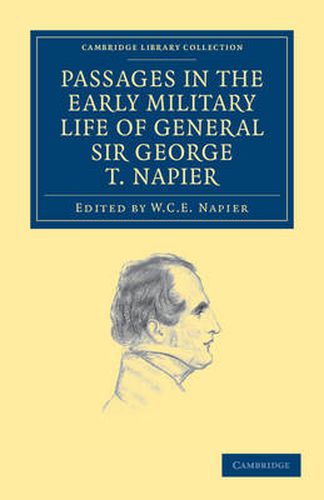Readings Newsletter
Become a Readings Member to make your shopping experience even easier.
Sign in or sign up for free!
You’re not far away from qualifying for FREE standard shipping within Australia
You’ve qualified for FREE standard shipping within Australia
The cart is loading…






George Napier (1784-1855) was a brother of the famous soldiers Sir Charles and Sir William Napier, and himself had a distinguished career in the British Army as general and Governor of the Cape of Good Hope, South Africa. He wrote these memoirs to guide and amuse his own children, not intending them to be widely circulated. In 1884, however, his son published them, earning a letter of congratulation from Queen Victoria. George Napier tells of his early army life, which took him around Europe from Sicily to Sweden to Bordeaux, and writes of his admiration for the Duke of Wellington, hailing him as ‘one of the greatest captains that ever lived’. Napier’s reflections on the responsibilities of an army officer (including the duty to obey and not to criticise), and his advice on how a regiment should be commanded, raise this work above a conventional autobiography.
$9.00 standard shipping within Australia
FREE standard shipping within Australia for orders over $100.00
Express & International shipping calculated at checkout
George Napier (1784-1855) was a brother of the famous soldiers Sir Charles and Sir William Napier, and himself had a distinguished career in the British Army as general and Governor of the Cape of Good Hope, South Africa. He wrote these memoirs to guide and amuse his own children, not intending them to be widely circulated. In 1884, however, his son published them, earning a letter of congratulation from Queen Victoria. George Napier tells of his early army life, which took him around Europe from Sicily to Sweden to Bordeaux, and writes of his admiration for the Duke of Wellington, hailing him as ‘one of the greatest captains that ever lived’. Napier’s reflections on the responsibilities of an army officer (including the duty to obey and not to criticise), and his advice on how a regiment should be commanded, raise this work above a conventional autobiography.